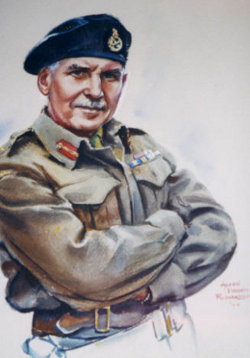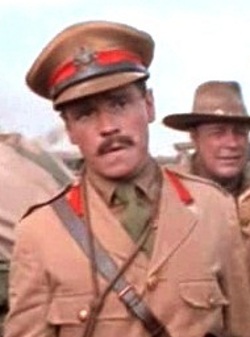Topic: Drill and Training
The Cavalry will be Victorious
 The following anecdote, from the biography of Major-General F.F. Worthington, father of the Canadian Armoured Corps, illuminates the enduring conflict between templated training expectations and ingenuity.
The following anecdote, from the biography of Major-General F.F. Worthington, father of the Canadian Armoured Corps, illuminates the enduring conflict between templated training expectations and ingenuity.
The army was back in the horse era [following WWI] and while militarily regressive, it was good fun and exercise for all concerned. There were not enough army horses to mount the militia, so a varied collection of horseflesh was hired for the duration of the camp, mostly untrained range ponies. As a grand finale to training, a full-scale sham battle took place at the end of the summer. For this, the militia converged from all points, but mainly from the cities, the majority being business men and office workers. The general officer commanding Military District No. 10 was a hard-bitten cavalrymen of the old school and it was mandatory that victory go to the cavalry after a furious charge annihilating the infantry.
This foregone conclusion was a sore point with the veteran machine-gunners, Worthy and Blackie in particular, who knew it to be preposterously unrealistic, so that summer of 1923 steps were taken to destroy the fallacy for all time – if not by fair means, then by foul.
The day arrived, and at dawn the infantry marched off to do battle, each man with a newspaper sheet inside his tunic. Throughout the long hours they advanced, manoeuvred, deployed, as the situations warranted. By late afternoon, hot and dusty, all were ready to call it a day. The intrepid horsemen formed up for the coup de grace – the devastating charge that would proclaim them the superior force – and with a flourish of trumpets, galloped down upon the hapless foot soldiers. The infantry held their ground until the crucial moment, then on command the newspapers blossomed forth, wildly waving in front of the oncoming horses.
It was stupendous. Chargers stampeded in all directions, horsemen toppled like ninepins, and by a miracle the only casualties were bumps and bruises. An overwhelming victory for the infantry – but when the account reached M.D. 10 headquarters, the top blew off.
The Gopher Hole Gazette – a camp news-sheet starting and ending with that summer, carried an hilarious account in what was to be, in consequence, its final issue. Standing orders were then issued that hereafter, notwithstanding, the cavalry would be victorious. That couldn't happen to-day. The Canadian Army has acquired a sense of humour along with a sense of proportion. – Larry Worthington, 'Worthy'; A Biography of Major-General F.F. Worthington, C.B., M.C., M.M., 1961
Panic on Peace Manoeuvres
 In a similar vein, Richard Meinertzhagen also defeated his "enemy" through the effective application of surprise in training.
In a similar vein, Richard Meinertzhagen also defeated his "enemy" through the effective application of surprise in training.
In early September [1924] the garrison of Cologne was engaged in brigade training. I was given command of the skeleton enemy comprising four aeroplanes, six tanks, a squadron of cavalry and two skeleton battalions. I had to take up a position on a low ridge. The opposing force comprised an infantry brigade, a field artillery battery and a squadron of cavalry. I hid my cavalry in a thick wood quite close to and on the flank of my position. I was in wireless communication with my aeroplanes, which were some eight miles distant, and my tanks I placed in front of my position but beautifully disguised as haystacks. When the brigade attacked and were about to launch an assault, my cavalry burst out of the wood and took the enemy in the flank, my tanks threw off their haystacks and advanced on the attacking enemy, and my aeroplanes, advised by signal, came up from the rear of the attacking enemy, very low down, and bombarded the enemy's guns, infantry and cavalry with hundreds of tennis-balls which I had collected in Cologne. The result was disastrous, and I witnessed what I had never seen before – panic on peace manoeuvres. The infantry were terrorised and ran, fixing their bayonets. Two companies of the K.O.Y.L.I. and one company of the 60th bolted and spread panic among the rest. The gunner horses took fright and broke loose and the gunners took refuge under their guns. I never saw such pandemonium.
At the subsequent conference the gunner officers and colonels commanding battalions severely criticised my unorthodox methods, but Bethel, in charge of the exercise, congratulated me on such realistic methods during peace manoeuvres. Everyone was very angry with me, but I could not help laughing at troops panicking when tennis-balls are dropped on them from aeroplanes. – Colonel R. Meinertzhagen, CBE, DSO, Army Diary, 1899-1926, 1960

If surprise is a principle of war, then why do senior officers always seem to get upset when someone correctly applies it in the middle a training exercise? Apparently, invalidating the Master Events List by out-thinking the "enemy" and the exercise planner is a cardinal sin.

